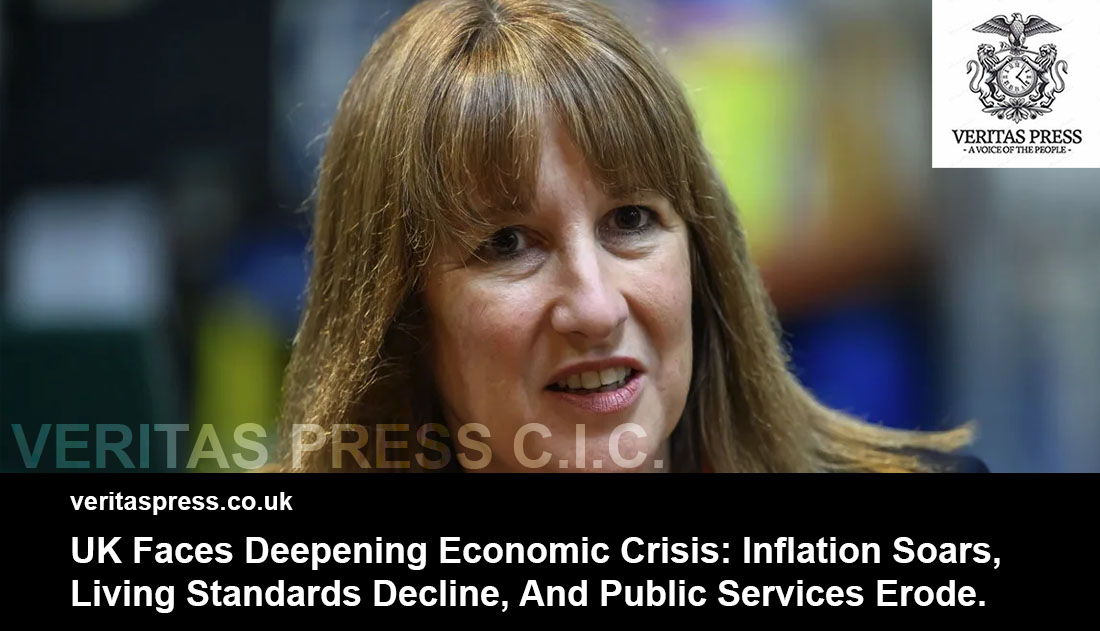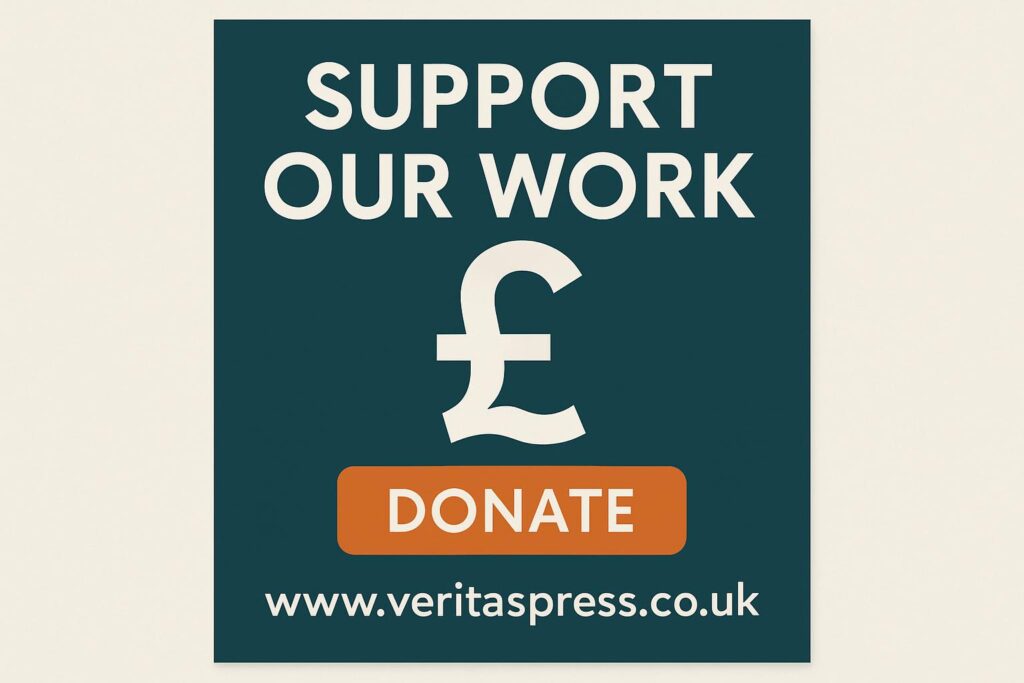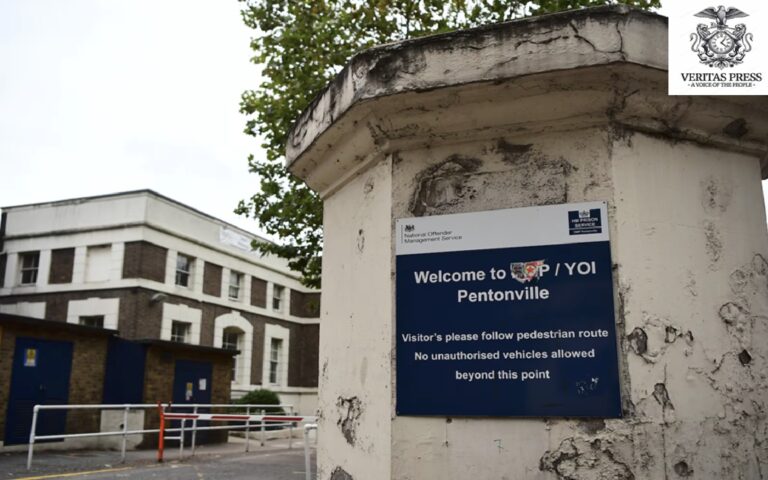The United Kingdom is facing the highest inflation among the G7 nations, according to the International Monetary Fund (IMF), compounding pressure on Chancellor Rachel Reeves ahead of her make-or-break November Budget. The IMF’s World Economic Outlook warns that UK inflation is set to average 3.4% in 2025, rising above all other major advanced economies, before easing slightly to 2.5% in 2026, still higher than previous predictions.
Inflation And The Cost-Of-Living Crisis:
UK households are facing a relentless cost-of-living squeeze. The Office for National Statistics (ONS) recorded Consumer Price Index (CPI) inflation at 3.8% in July and August 2025, the highest since January 2024, driven by surging food, hospitality, and energy costs. Many firms cite rising labour costs, tax pressures, and regulatory hikes in utilities as major contributors.
This inflationary surge has exacerbated an already deepening cost-of-living crisis. According to the Joseph Rowntree Foundation, as of May 2025, 4.4 million low-income families were behind on at least one bill, with an average arrears of £1,380. Alarmingly, families with three or more children are disproportionately affected, with over 80% falling behind on multiple bills.
Chancellor Reeves acknowledged the challenges but sought to inject optimism, highlighting that the UK led the G7 in growth in the first half of the year, with average disposable income up £800 since the last election. “But know this is just the start. For too many people, our economy feels stuck. Working people feel it every day, experts talk about it, and I am going to deal with it,” she said.
Stagnant Growth Amid Rising Debt:
While the IMF has upgraded the UK’s GDP growth forecast to 1.3% for 2025, the second-fastest in the G7, per capita growth remains weak at 0.4%, reflecting that average living standards are barely improving. Growth for 2026 has been downgraded to 1.3%, reflecting concerns over labour market pressures and global trade uncertainties, particularly amid ongoing US and EU tariff tensions.
The IMF also flagged mounting public debt pressures. The structural deficit is estimated between £30bn and £40bn, with interest payments consuming a growing share of government spending. High inflation and elevated borrowing costs further complicate efforts to stabilise the public finances, raising questions over the feasibility of sustaining the triple lock on pensions and managing public sector pay demands.
Welfare Cuts And Service Reductions:
Compounding the economic squeeze, government reforms have reduced welfare entitlements and scaled back public services. The 2025 Personal Independence Payment (PIP) reforms introduced stricter eligibility criteria, projected to reduce working-age claimants by around 390,000 by 2029/30, with an average annual income loss of £4,500 for those affected.
Similarly, the Winter Fuel Payment, previously available to most pensioners, has been narrowed to those earning under £35,000. At the same time, public service departments face mandated cuts of at least 11% in real terms by 2028–29, with an expected £2.2bn in savings but inevitable reductions in accessibility and quality.
Political Repercussions And Industry Impact:
Opposition voices have been vocal. Shadow Chancellor Sir Mel Stride described the IMF’s assessment as “grim reading,” accusing Labour of allowing costs to rise, debt to balloon, and business confidence to collapse. He warned that families are being “squeezed from all sides” by higher taxes and rising inflation.
Industry groups have also flagged concern over reduced investment and employment pressures, particularly in hospitality, retail, and manufacturing sectors facing both rising operational costs and shrinking consumer spending power. Many warn that without decisive government intervention, further job losses and industrial decline are likely, deepening regional inequalities and economic insecurity.
Looking Ahead To The November Budget:
Chancellor Reeves faces a narrow window to address these interlinked challenges. The November Budget will need to balance curbing inflation, stabilising public finances, and supporting households under severe cost-of-living pressures. Experts highlight the need for targeted social support, fiscal restraint, and investment in industries to maintain growth and employment.
Failure to act decisively risks entrenching economic inequality, further reducing living standards, and fueling public discontent. As Reeves prepares to unveil her plans, the IMF’s “grim” forecasts serve as a stark reminder that the UK’s economic challenges are systemic, not temporary.
Conclusion: Britain’s Austerity Loop and the Illusion of Recovery.
The IMF’s warning is not just about inflation, it is an indictment of a broken economic order. The UK’s stubbornly high prices, stagnant wages, and declining living standards are not isolated outcomes but the cumulative result of policy failure: a decade of austerity rebadged as fiscal prudence, social welfare redefined as “efficiency,” and economic recovery measured by stock prices rather than human well-being.
Chancellor Rachel Reeves speaks of “stability” and “responsibility,” but the evidence tells a harsher truth. Britain’s recovery is shallow, its inflation self-inflicted, its growth fragile, and its social contract fraying. Behind the government’s upbeat rhetoric lies a quiet dismantling of the public realm, the erosion of benefits, the hollowing out of local councils, the chronic underfunding of the NHS, and the steady decline of industrial capacity. Each cut and reform is presented as a necessity, but together they form a pattern: a managed withdrawal of the state from the lives of ordinary citizens.
The cost-of-living crisis, once seen as a temporary shock, has become the country’s defining reality. Families are trapped between rising rents, shrinking benefits, and public services that no longer function as safety nets. Inflation has become the new austerity, a silent tax that punishes the poor and shields the wealthy. And while the IMF figures may appear abstract, they translate into empty fridges, longer NHS waiting lists, shuttered high streets, and households forced to choose between heating and food.
What Britain faces is not just an economic downturn but a moral crisis in governance. Successive governments, Labour and Conservative alike, have mistaken restraint for strategy and fiscal caution for justice. The result is a fragile economy built on insecure work, speculative housing, and eroded public infrastructure.
If Reeves’ November Budget continues down this path, cutting deeper while promising growth, it will not repair the economy but entrench its decline. True recovery demands more than balanced books; it requires reimagining what the economy is for and who it should serve. Without that reckoning, the UK will remain caught in its austerity loop, a nation told it cannot afford fairness, condemned to confuse survival for stability.
































